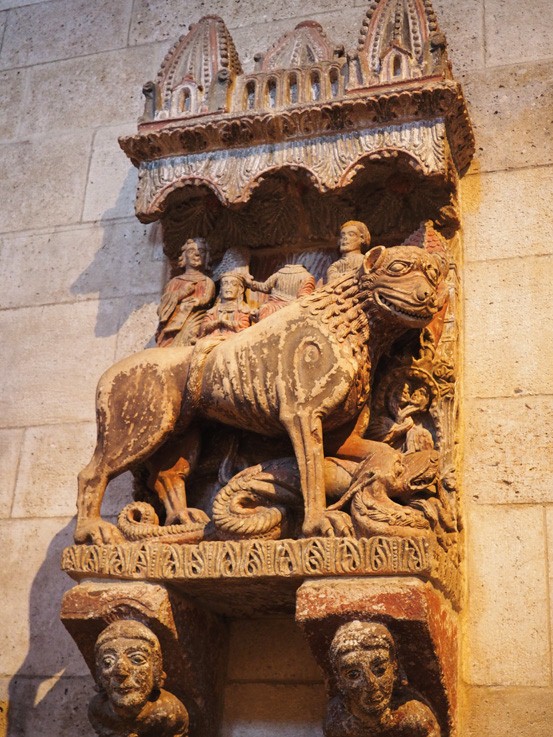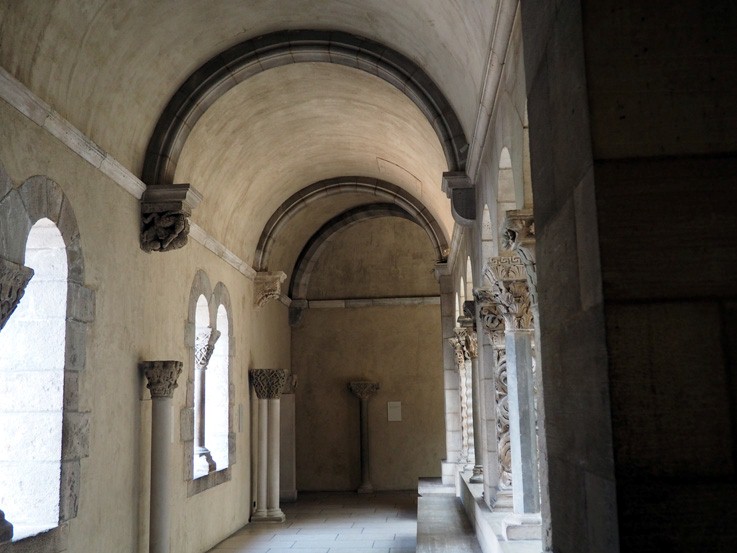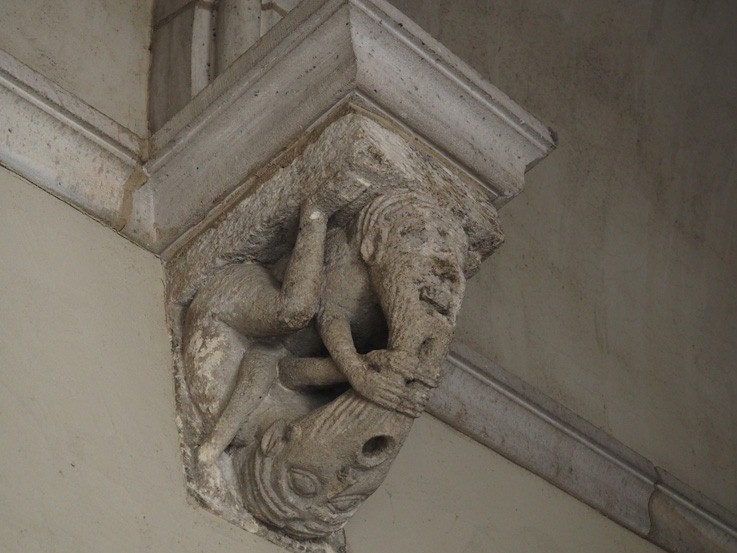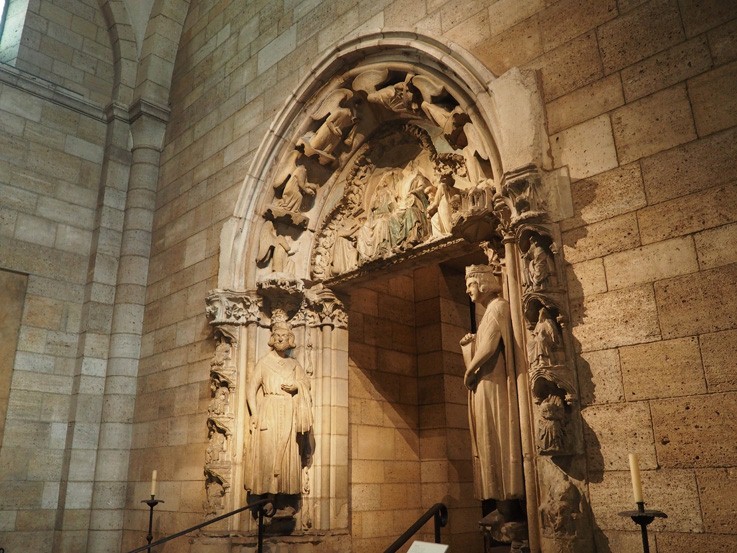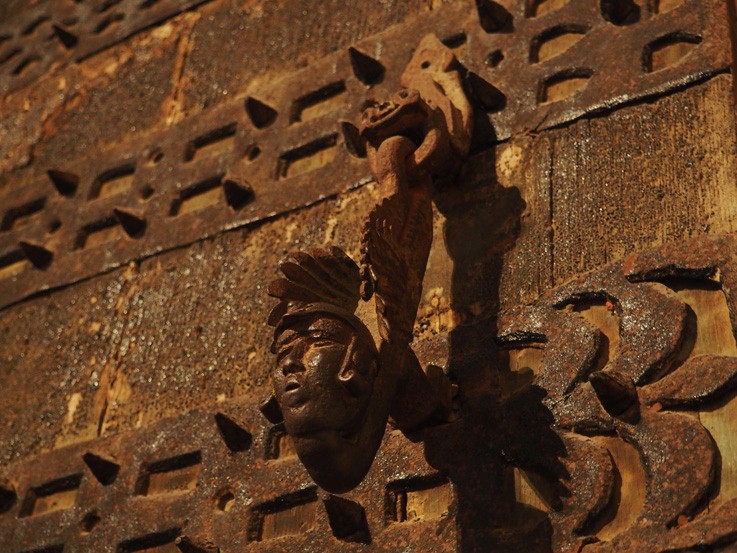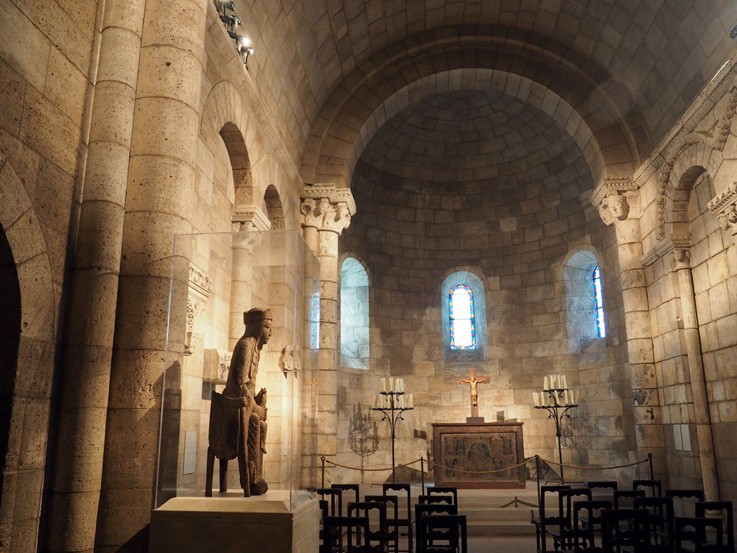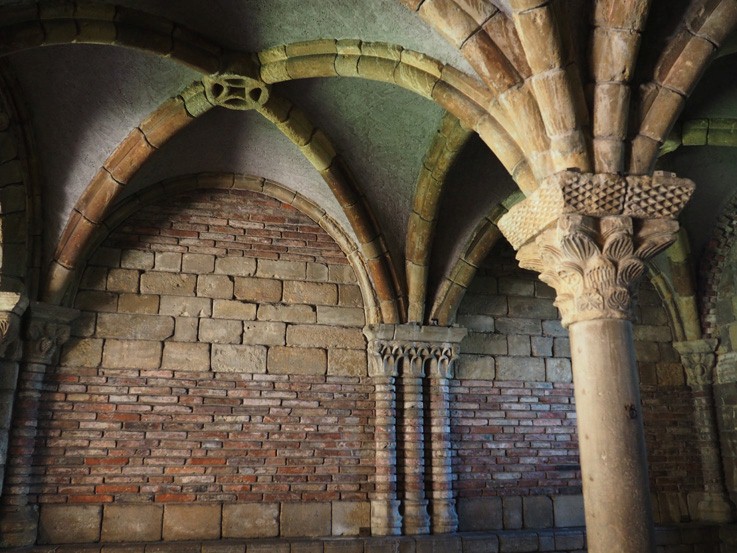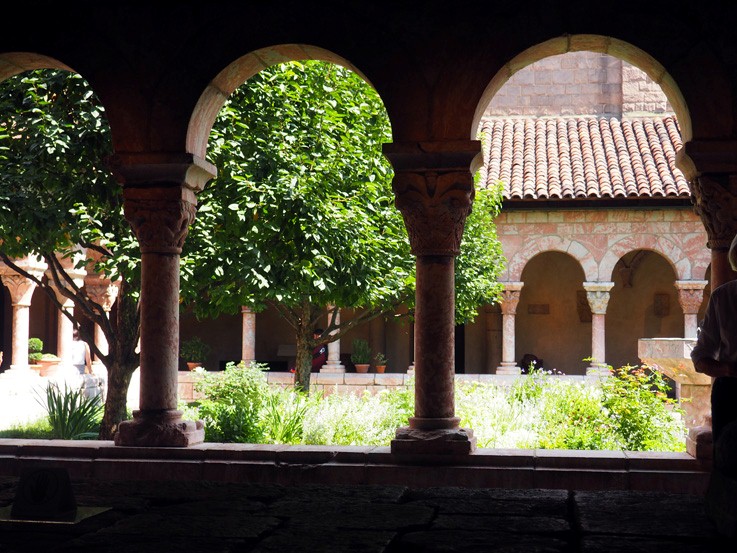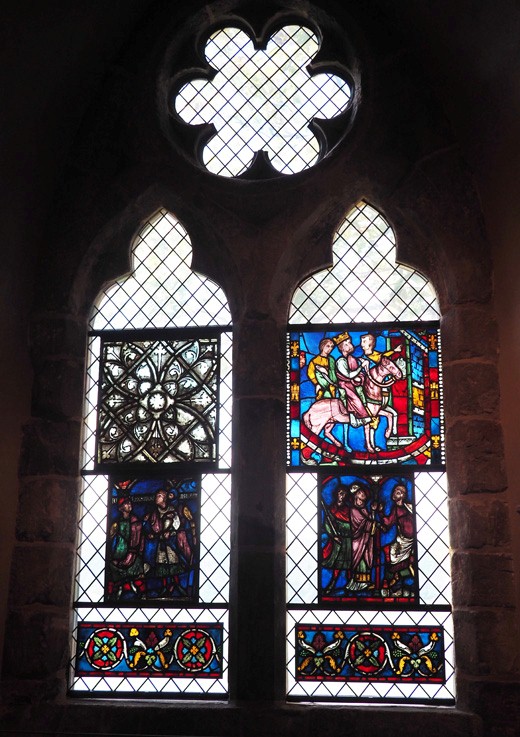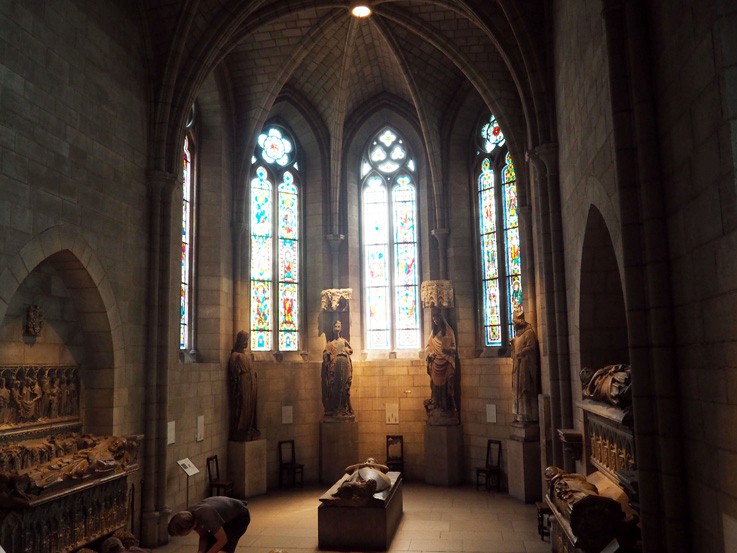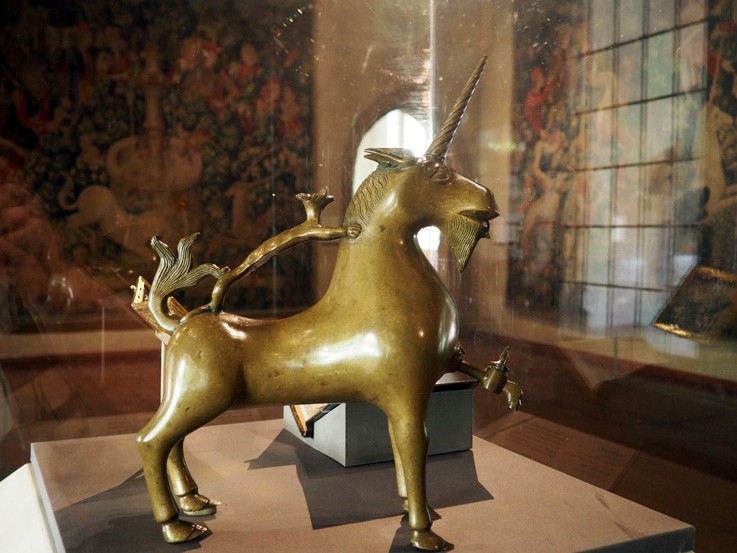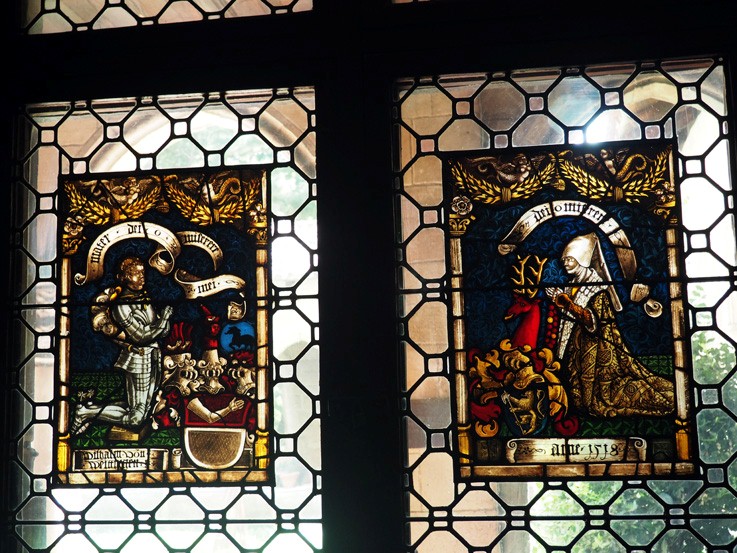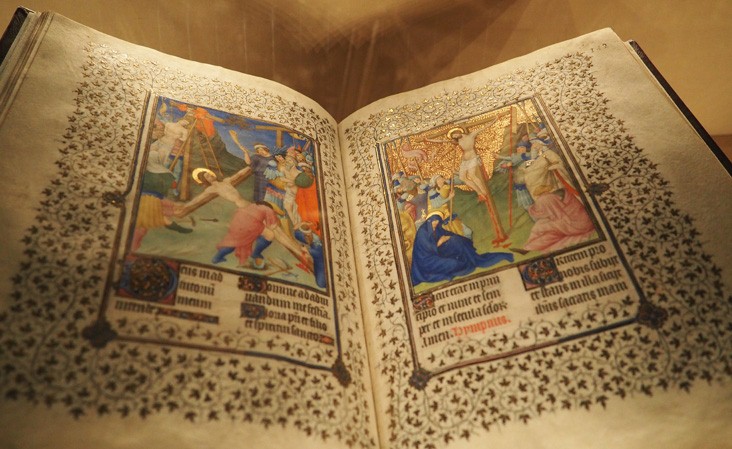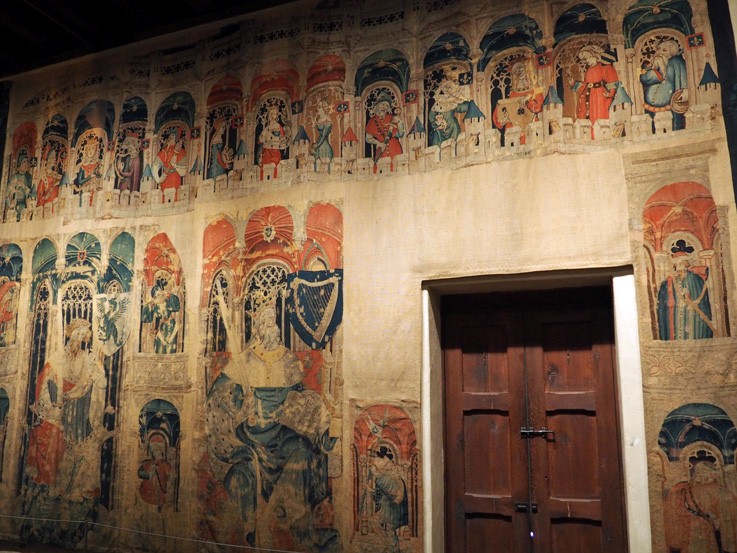One of my top priorities in New York was to visit The Cloisters Museum & Gardens: the branch of the Metropolitan Museum of Art dedicated solely to their extensive collection of medieval art and architecture. Instead of creating a copy of one specific building, The Cloisters combines religious and secular architecture in chronological order throughout the building. This makes each room a beautiful complement to the art as well as an immersive experience; it’s rare to see period art in context with its surroundings. Medieval art tends toward the highly religious, and while I’m not generally entranced with the subject matter, the craftsmanship is undeniable, and visiting The Cloisters was a unique opportunity that I refused to miss.
Fuentiduena Chapel
Saint-Guilhem Cloister
Romanesque Hall
Langon Chapel
Pontaut Chapter House
Monks from the Cistercian abbey at Pontaut in Aquitaine once gathered for daily meetings in this twelfth-century enclosure known as a chapter house. At the time of its purchase in the 1930s by a Parisian dealer, the column supports were being used to tether farm animals.
Cuxa Cloister & Garden
Both medieval and modern species of plants are grown in the garden, the pink stone of which was quarried in the twelfth century for the Benedictine monastery of Saint-Michel-de-Cuxa.
Early Gothic Hall
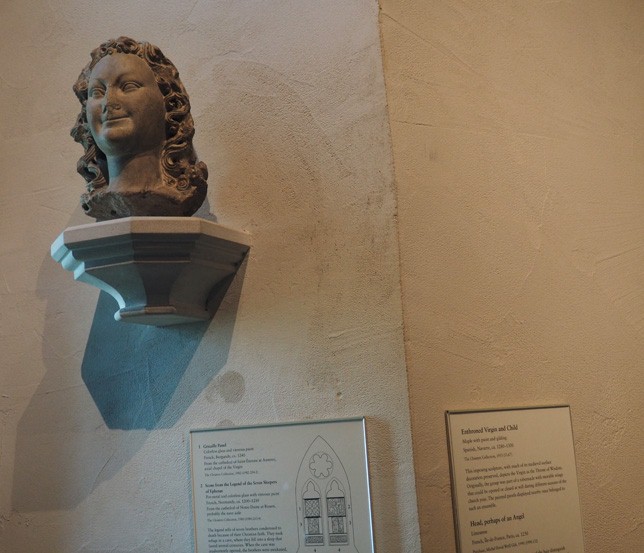 The title of this piece of artwork kills me: “Head, perhaps of an Angel”. It reminds me of nothing so much as the conclusions that the Ghost Adventures bros leap to. You could just call it “Head”? Or stick to your convictions and call it “Angel Head”?
The title of this piece of artwork kills me: “Head, perhaps of an Angel”. It reminds me of nothing so much as the conclusions that the Ghost Adventures bros leap to. You could just call it “Head”? Or stick to your convictions and call it “Angel Head”?
Gothic Chapel
The Gothic Chapel contains stained glass windows from fourteenth century Austria and carved images from royal and noble tombs of Spain and France.
Glass Gallery
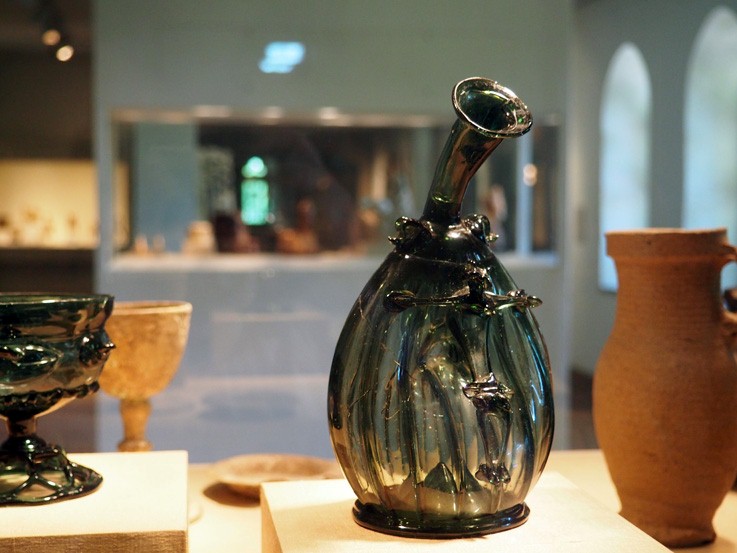 Our father, who art in heaven, hallowed be thy bong
Our father, who art in heaven, hallowed be thy bong
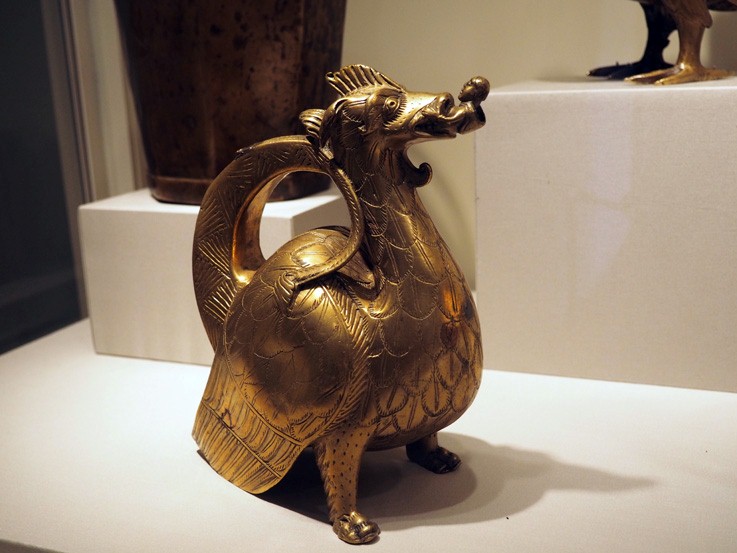 A water vessel of a dragon eating a man or a man escaping from a dragon’s mouth.
A water vessel of a dragon eating a man or a man escaping from a dragon’s mouth.
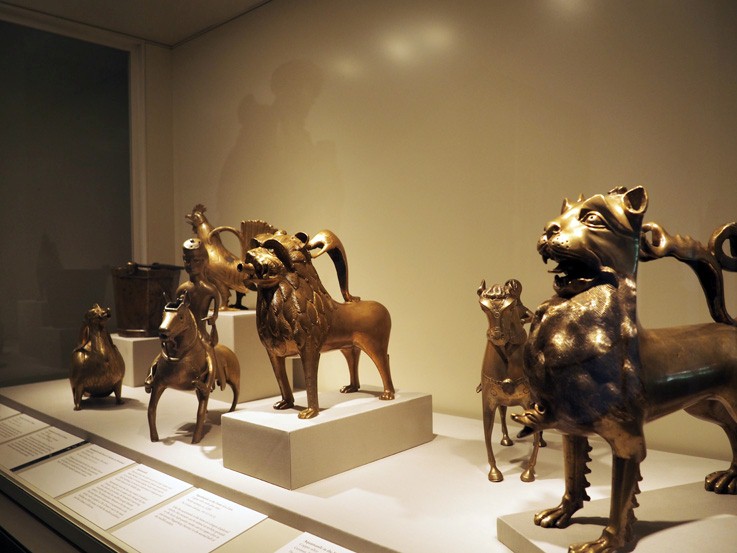 Selection of fanciful water vessels
Selection of fanciful water vessels
Seasonal Cafe in Trie Cloister
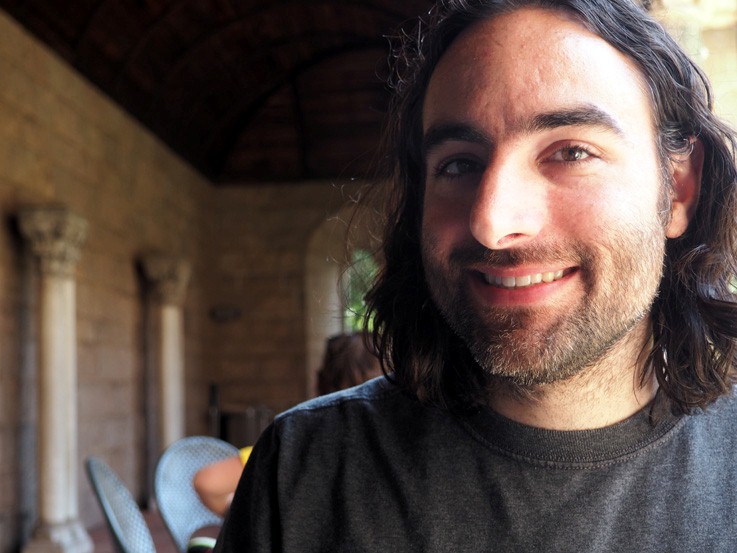 Jason, refreshed after drinking a $6 bottle of medieval Sprite. My $6 medieval water was just ok.
Jason, refreshed after drinking a $6 bottle of medieval Sprite. My $6 medieval water was just ok.
Treasury
A room that illustrates the wealth of medieval churches, containing precious objects wrought in gold, silver, ivory, and silk.
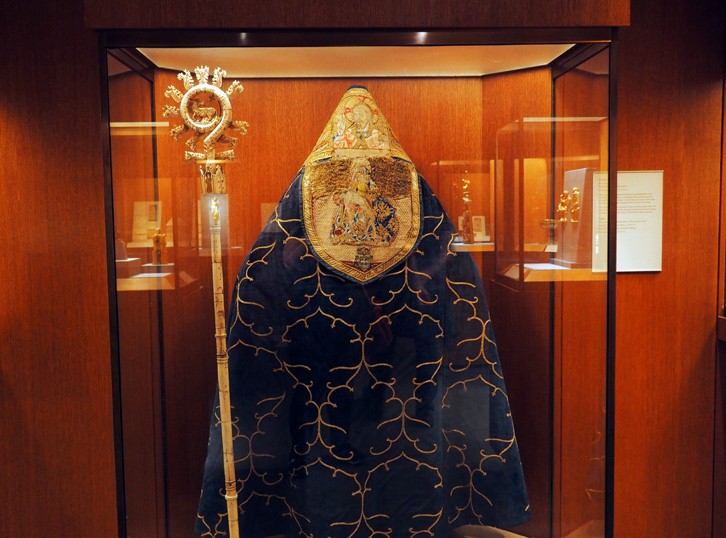 In days of old when knights were bold, bishops dressed like wizards.
In days of old when knights were bold, bishops dressed like wizards.
 This chalice is legit. Even crappy booze would seem fancy when sipped out of this thing, which after you paid for it, would be the only type of booze you could afford.
This chalice is legit. Even crappy booze would seem fancy when sipped out of this thing, which after you paid for it, would be the only type of booze you could afford.
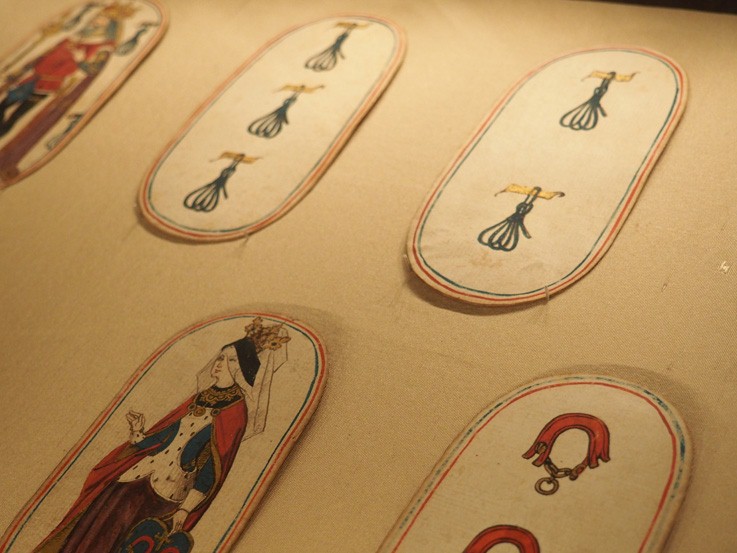 15th century illuminated playing cards
15th century illuminated playing cards
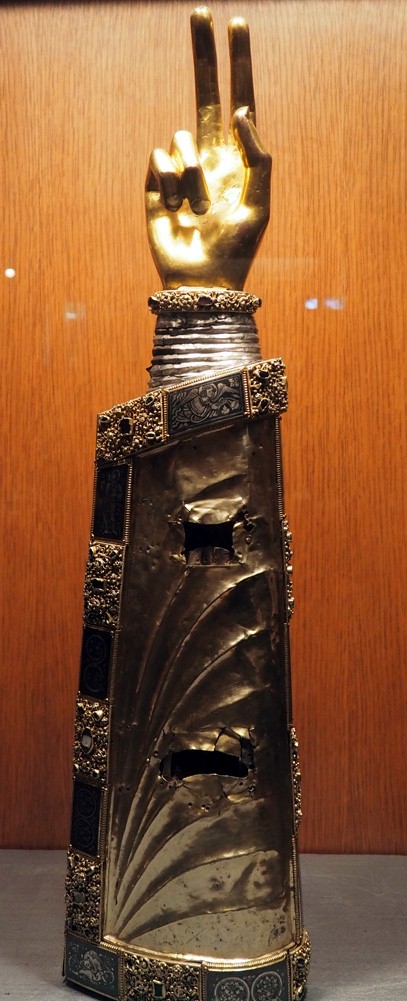 This must be Jamie Lannister’s lesser-used gold hand reserved for fun times.
This must be Jamie Lannister’s lesser-used gold hand reserved for fun times.
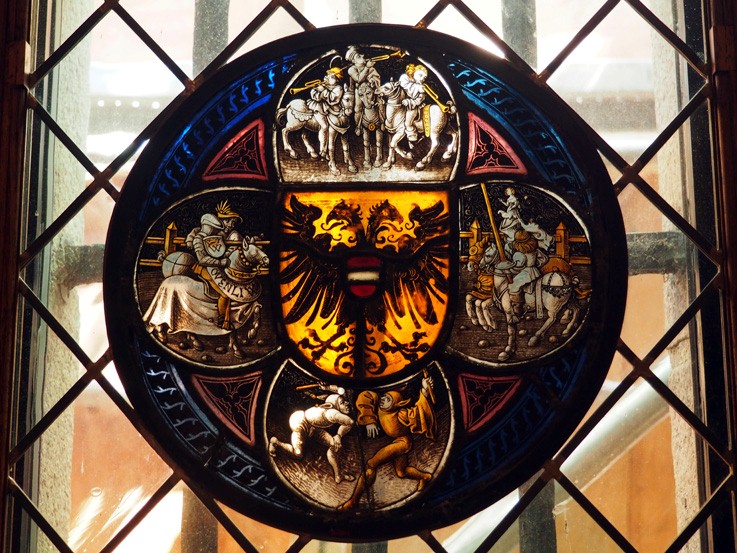 Quatrefoil roundel with arms and secular scenes
Quatrefoil roundel with arms and secular scenes
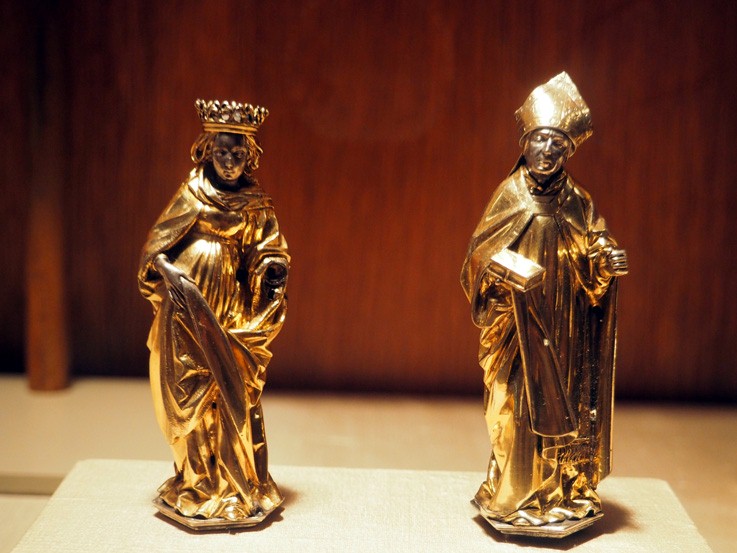 Bishop saint and female saint wrought in silver. I feel that it’s a missed opportunity to not have had reproductions in the gift shop as salt and pepper shakers.
Bishop saint and female saint wrought in silver. I feel that it’s a missed opportunity to not have had reproductions in the gift shop as salt and pepper shakers.
Boppard Room
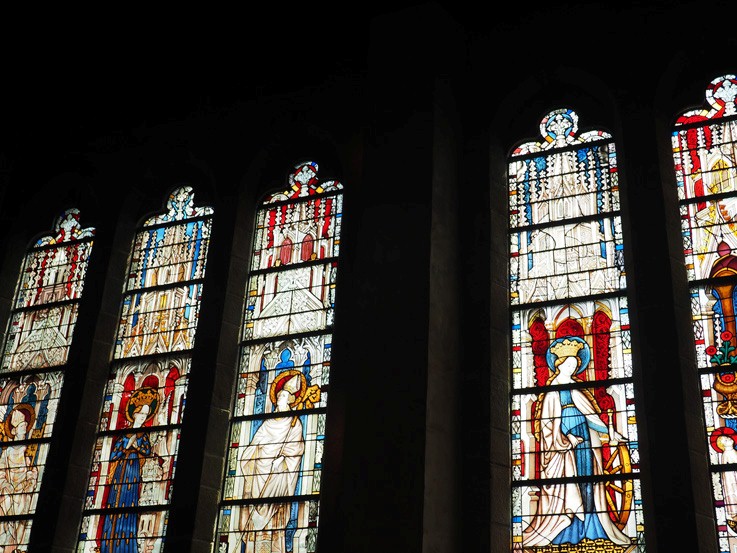 Stained glass from the fifteenth century Carmelite convent
Stained glass from the fifteenth century Carmelite convent
Merode Room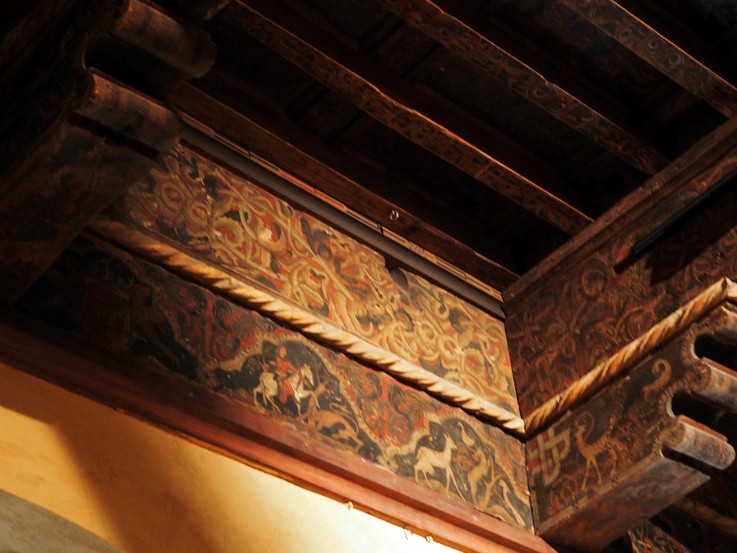 Even the wood beams on the ceilings in the Merode Room were works of art!
Even the wood beams on the ceilings in the Merode Room were works of art!
Late Gothic Hall
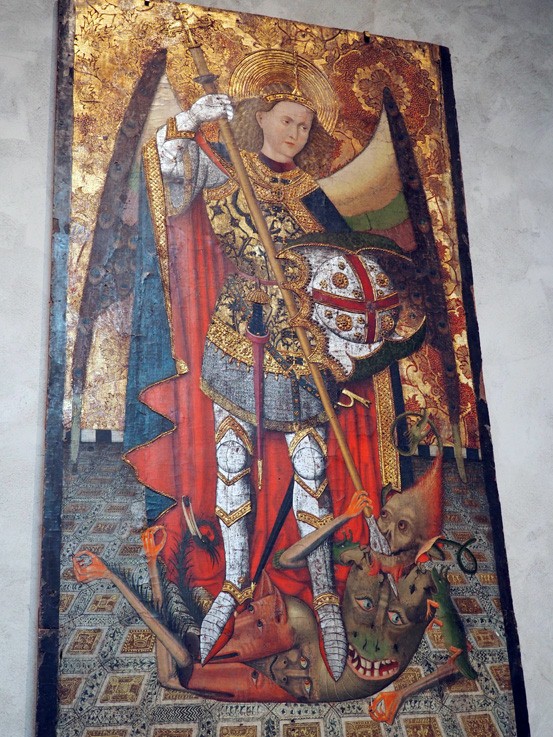 The archangel Michael defeats the antichrist. Possibly the inspiration for the “bitchin tattoo” an ex of mine expressed a desire to acquire. Frankly, this depiction of the antichrist only raises more questions for me, like, what the eff does he do with all of those mouths and why is he helping Michael to jab him through the uppermost mouth and if he has mouths all over and salamander arms and chicken feet, why are Christians worried that he walks among us unseen? He’s not exactly Waldo, I’m pretty sure I could pick him out of a crowd with no trouble.
The archangel Michael defeats the antichrist. Possibly the inspiration for the “bitchin tattoo” an ex of mine expressed a desire to acquire. Frankly, this depiction of the antichrist only raises more questions for me, like, what the eff does he do with all of those mouths and why is he helping Michael to jab him through the uppermost mouth and if he has mouths all over and salamander arms and chicken feet, why are Christians worried that he walks among us unseen? He’s not exactly Waldo, I’m pretty sure I could pick him out of a crowd with no trouble.
Nine Heroes Tapestries Room
From a series of nine hangings created around 1400 for a member of the Valois court; they are among the earliest sets of surviving medieval tapestries.
Unicorn Tapestries Room
The Cloisters wouldn’t be what it is without the contributions of John D Rockefeller Jr–not only did he donate the land for the site of the museum, but he also donated a significant amount of land around the museum to preserve the view of the Hudson river, as well as donating works of art from his own collection, including the Unicorn Tapestries. In truth, the Unicorn Tapestries were the main impetus behind my visit. I’ve always had it bad for unicorns, and I recall first encountering the Unicorn Tapestries in an enormous book in the library filled with unicorn art throughout history. The book was incredible…and I never saw it in the library again, nor have been able to find its like. It was then that I realized that the introduction to The Last Unicorn cribbed heavily from the Unicorn Tapestries. Well, one of them, anyway.
Their origin and symbolism remain a mystery. The initials found in several of the tapestries point to two different potential owners/commissioners, as well as signs that they may be part of two separate sets. If not, there’s debate as to whether they were woven in Brussels or the Netherlands and as to whether their meaning is religious or secular. My uneducated belief is secular, if only because by this point in the museum, it was clear that people weren’t exactly afraid of putting Jesus on everything so there wasn’t exactly a need to couch it in hunt symbolism.
We didn’t enter the Unicorn Tapestries room until close to the end of our visit, and I’m not exaggerating when I say it’s the closest thing to a religious experience I’ve ever had. Here is this artwork that I’ve seen small, lesser versions of for over twenty five years, in person, large as life. Much larger than I’d imagined. Vivid, astoundingly detailed. Lush. I almost cried at their beauty.
Nothing compares with seeing them in person, but the Met has high quality scans so you can see more of the detail. They did offer Unicorn in Captivity tapestry decorative pillows in the gift shop, but they were pale shadows compared to the original, which is a shame. If they were even somewhat close to the beauty of the tapestries themselves, I’d have flung money at them for the opportunity to have a reminder in my home of how I felt standing in the Cloisters.
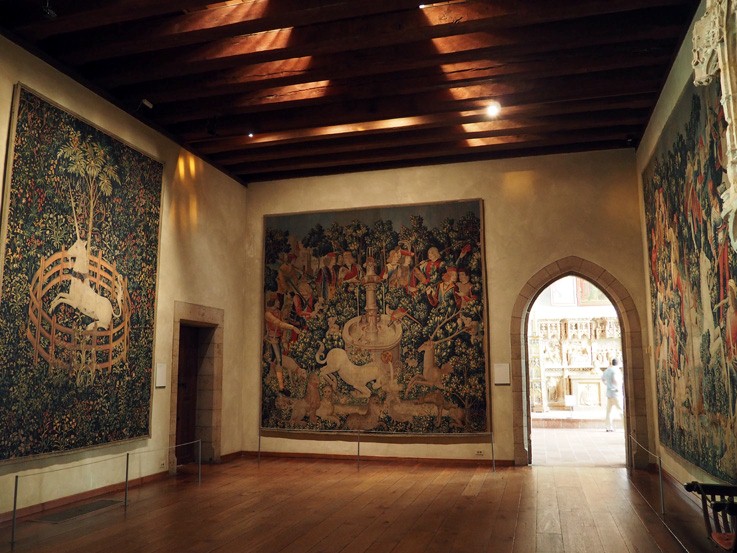 The 7th, 2nd, and 3rd Unicorn Tapestries (l-r)
The 7th, 2nd, and 3rd Unicorn Tapestries (l-r)
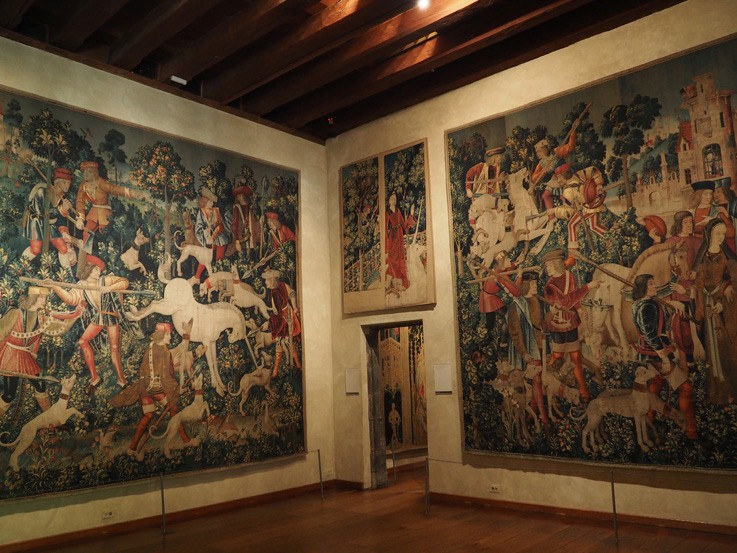 The 4th, 5th, and 6th Unicorn Tapestries (l-r)
The 4th, 5th, and 6th Unicorn Tapestries (l-r)
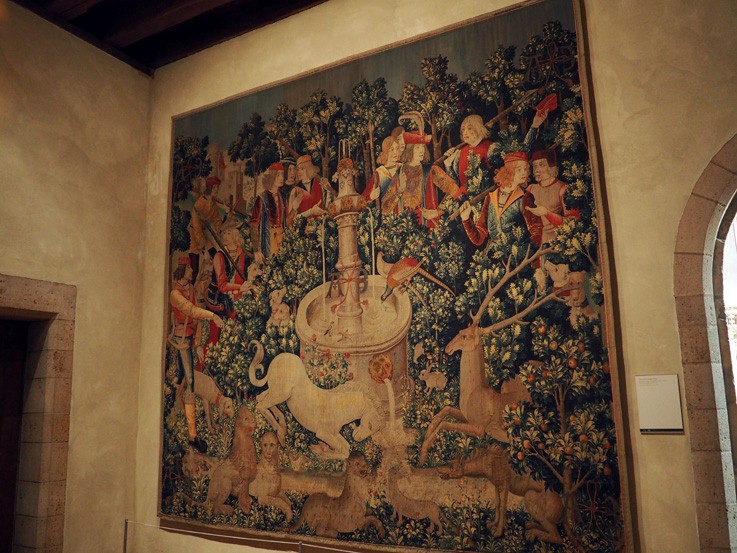 The 2nd tapestry, The Unicorn is Found. Also known as The Unicorn at the Fountain.
The 2nd tapestry, The Unicorn is Found. Also known as The Unicorn at the Fountain.
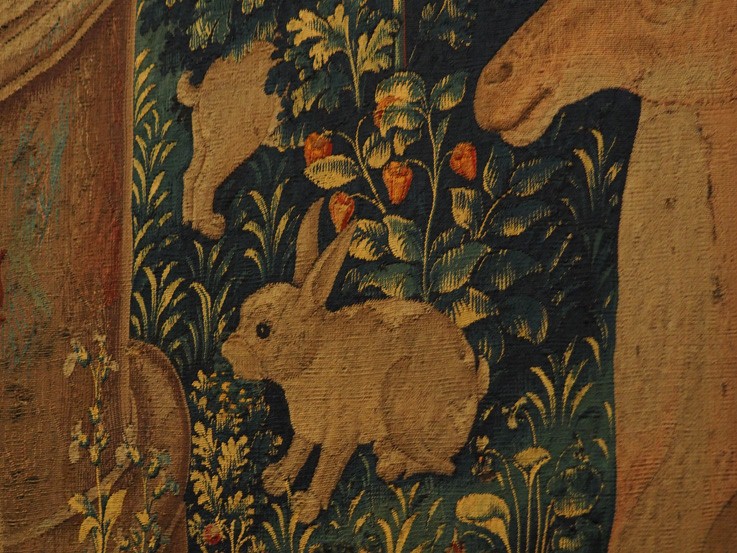 Jason attempted to point out these bunny butts on the second tapestry to me, and apparently his finger crossed some sort of laser beam line because all of a sudden a siren was going off and a guard was furiously motioning at us to stay away from the tapestries. He didn’t touch anything! That bun is an instigator. Troublemaker. Tattler.
Jason attempted to point out these bunny butts on the second tapestry to me, and apparently his finger crossed some sort of laser beam line because all of a sudden a siren was going off and a guard was furiously motioning at us to stay away from the tapestries. He didn’t touch anything! That bun is an instigator. Troublemaker. Tattler.
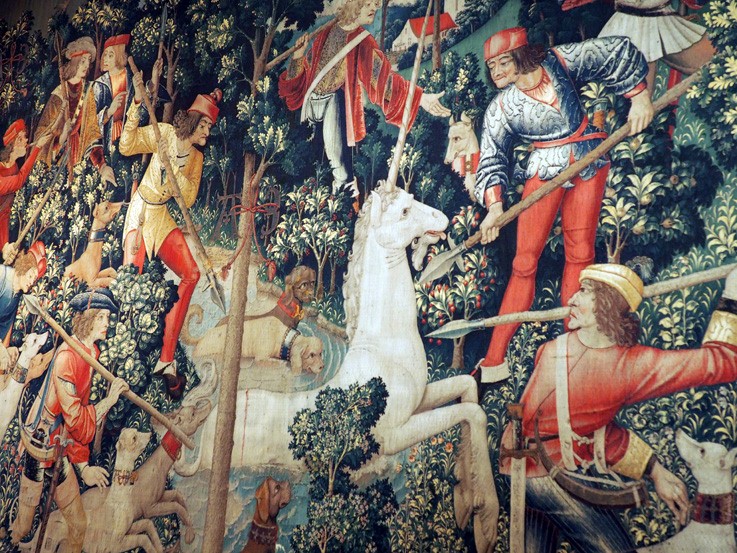 Detail of the 3rd tapestry, The Unicorn is Attacked or The Unicorn Leaps the Stream
Detail of the 3rd tapestry, The Unicorn is Attacked or The Unicorn Leaps the Stream
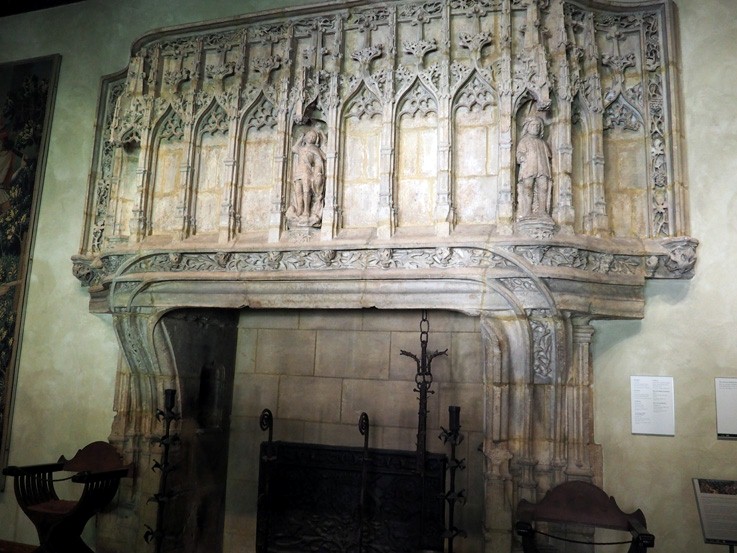 The fireplace to end all fireplaces in the Unicorn Tapestries room!
The fireplace to end all fireplaces in the Unicorn Tapestries room!
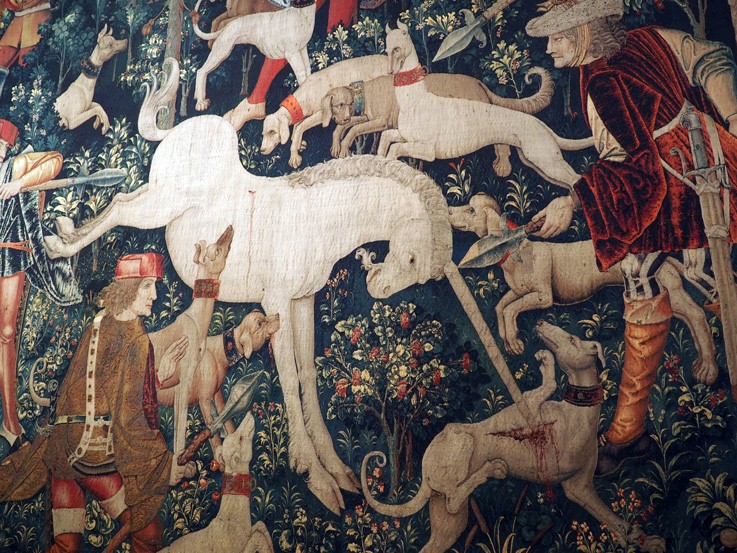 Detail of the 4th tapestry, The Unicorn Defends Itself
Detail of the 4th tapestry, The Unicorn Defends Itself
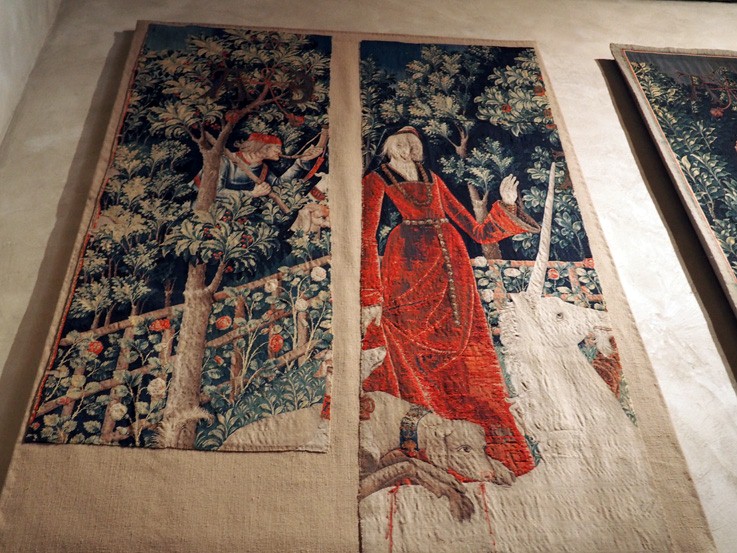 Fragments of the 5th tapestry, The Mystic Capture of the Unicorn
Fragments of the 5th tapestry, The Mystic Capture of the Unicorn
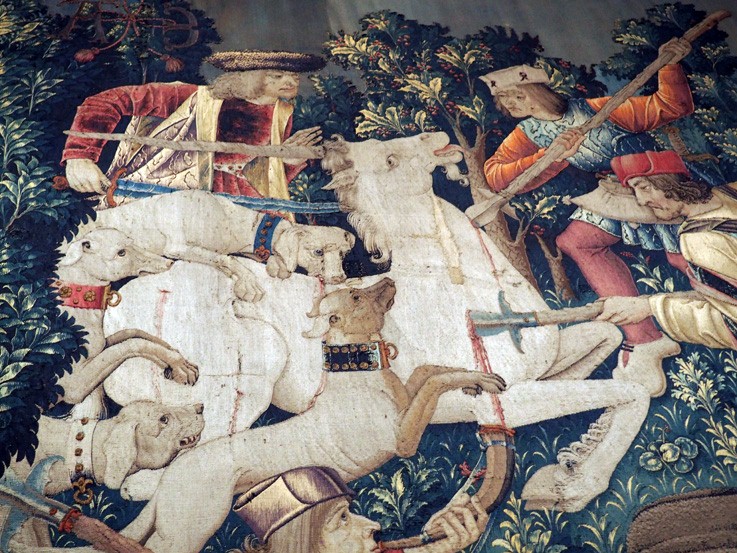 Detail of the 6th tapestry, The Unicorn is Killed and Brought to the Castle
Detail of the 6th tapestry, The Unicorn is Killed and Brought to the Castle
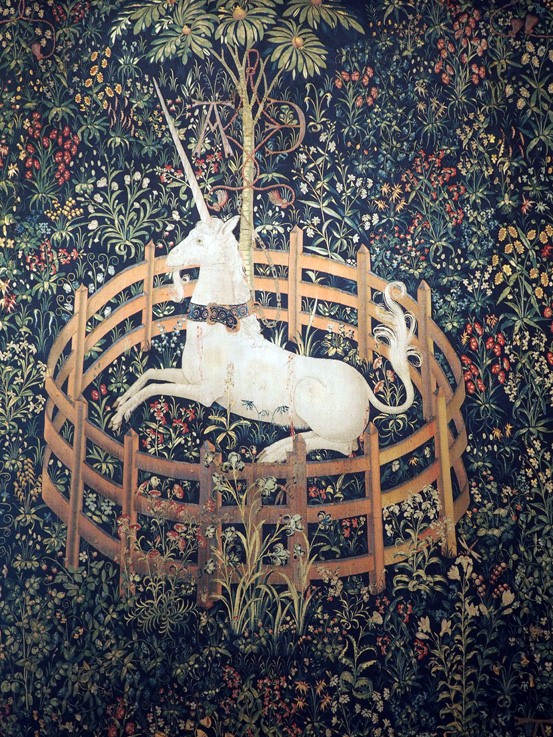 Detail of the 7th tapestry, The Unicorn in Captivity
Detail of the 7th tapestry, The Unicorn in Captivity

